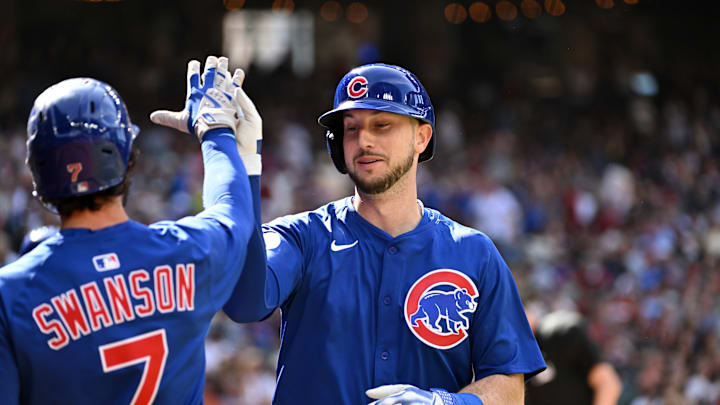2025 is as pivotal a year for the Chicago Cubs as any in recent memory. After back-to-back 83-win seasons, the onus is on Jed Hoyer, Craig Counsell and the players to finally pull this team out of its rebuilding phase and back into contention. It's been seven years since this team last appeared in the playoffs in a full season and eight since they last won a playoff game, and the time since then has been filled with mediocrity, criticisms about payroll and a sell-off of biblical proportions in 2021.
The team made some solid moves this offseason to supplement a core that lacked star power. Trading for Kyle Tucker, while expensive, finally gave the North Siders a superstar bat capable of striking fear into opposing pitchers with his career .275/.354/.519 slash line and 140 wRC+. They also added some much-needed pitching depth with Matthew Boyd, Colin Rea and more, a closer with Ryan Pressly, a real catching partner in Carson Kelly, and some solid bench bats that can more comfortably cushion against injuries. On top of all that, they are betting heavily on the real strides made by Pete Crow-Armstrong and Miguel Amaya toward the end of the year, alongside the arrival of top prospect Matt Shaw, to beat the projections given to them.
Despite the improvements, MLB executives and scouts aren't buying stock in the Cubs right now. In a preseason ESPN (subscription required) survey of 18 individuals around the league about who they think would be 2025's breakout teams, MVPs and more, Chicago got almost no love save for Tucker, who received two early NL MVP predictions in what's likely to be his only season at Wrigley. As a unit, they weren't considered a contender to be 2025's breakout team, with the Red Sox, A's, Twins, Blue Jays, and Nationals among the teams voted instead of them.
The lack of optimism also spread to their development. Nobody picked one of the Cubs' young stars to blossom into superstar status in 2025, nor was there any hitter or pitcher that scouts and executives wanted in critical situations. It's a reflection of a harsh reality — despite their moves, Hoyer's new-look team still isn't keeping pace with the rest of the league, lacks the upside they should have this deep into the rebuild, and still lacks any kind of national relevance.
The Cubs remain underwhelming amid a deep National League
On the one hand, it's hard to be a breakout team in the National League at this time. Save for the Miami Marlins, Colorado Rockies and Washington Nationals, no team projects to lose 90+ games in the NL by PECOTA's measure. Of those three, the Nationals were also voted as a potential breakout candidate, thanks to much-hyped youngsters like James Wood and Dylan Crews. The number of great teams is notable too, with the NL West and East fully loaded with three star-studded teams each.
However, the offseason also feels like a missed opportunity for the Cubs. Despite having an estimated luxury payroll around $213 million, a full $28 million under the first threshold, the team has acted like they're already stretching the limits of their finances. The most telling moves include signing the likes of Boyd and Rea instead of a frontline starter, being completely uncompetitive in the Alex Bregman sweepstakes despite the desire from the front office to add his bat, and trading Cody Bellinger for no other reason than saving money. It's beyond frustrating, especially when, in terms of percentage of revenue, the Cubs are 26th in the league in payroll, ahead of only the Pirates, Marlins, Rays and White Sox.
Bregman, a top-of-the-rotation arm like Garrett Crochet, and/or a more aggressive approach to the bullpen might have inspired more optimism among the league's scouts and executives, as well as the fans. Instead, it's another season focused on defying expectations and hoping for steps forward from their young players to become a standout team. The recent cataclysmic eight-run bullpen meltdown in Arizona hasn't exactly calmed nerves.
There are reasons to like this Cubs team, between the greater depth, a new superstar, and six top-100 prospects waiting in the wings alongside Shaw. PECOTA also buys into the vision, projecting them for 92 wins. They still have a ways to go and a lot to prove, though, before anyone starts truly taking them seriously. If Hoyer isn't right and the lack of confidence from executives is founded, it'll be his job, and the future of the team, on the line.
